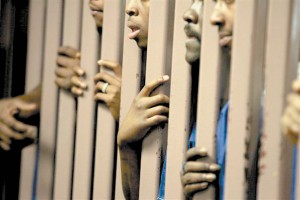Humane treatment and services sorely lacking in Louisiana prisons and jails
10th October 2016 · 0 Comments
With one in 75 adults in prison or jail and the Louisiana State Penitentiary at Angola earning the distinction of being the nation’s largest maximum-security prison, Louisiana has earned its reputation as the prison capital of the world. In the eyes of many justice and prison-reform advocates, Louisiana is also home to one of the most inhumane and draconian correctional systems.
Despite criticism about conditions in state jails and prisons and growing public pressure to reduce Louisiana’s prison population, things have gotten worse over the past four years, thanks in large part to state budgetary shortfalls. One cost-cutting measure in particular has strengthened Louisiana’s reputation as the worst place in the world to be placed behind bars.
Louisiana, a state that refuses to provide air conditioning for death row inmates, is the first state to convert its two private-run prisons into jails, a move that allowed the state Dept. of Corrections to do away with educational and medical services for thousands of state inmates, Nola.com reported.
The changed status of the two prisons in Winn and Allen, La. have allowed Dept. of Corrections officials to drastically reduce the cost of running the two facilities without violating prison regulations. While Governor John Bel Edwards said during his gubernatorial campaign that he wanted to reduce Louisiana prison population by 5,500 inmates, the conversion of the two private prisons into jails leaves 2,800 inmates without the medical and educational services that they had three months ago.
“It’s a step backward,” Jimmy LeBlanc, secretary of the state’s Dept. of Corrections, told Nola.com in a recent interview. Despite the recent setback, Gov. Edwards reportedly has bipartisan support from members of the Louisiana Legislative Black caucus and Christian conservative lawmakers on the other side of the political aisle.
Nola.com reported that despite a $9 million hike in the Dept. of Corrections’ budget for this year, the state has reduced spending on inmates in the two private prisons from $31.51 per inmate per day to $24.39. Records show that most medical and educational services were cut August 1 and about 100 staff positions were cut at each facility.
Although Winn Correctional Center has retained its GED program for the time being, it was forced to end its auto body shop and culinary educational programs on August 1. LeBlanc said federal Pell grants could potentially be used to bring back the auto-body shop and culinary programs. Both Winn and Allen Correctional Centers have shapely reduced medical services, with neither facility now providing a fulltime doctor or required visits from a psychiatrist. Winn and Allen are now required to have a doctor at the facility for about 20 hours a week to treat more than 1,400 inmates who have no other access to a doctor.
“High-need” inmates from Winn and Allen have been moved to other facilities. Inmates with chronic medical conditions, psychological problems or disciplinary issues are expected to be transferred to state-run prisons. Currently, Louisiana and California are the only two states that place inmates in local jails. While only about five percent of inmates are housed in local jails nationally, in Louisiana more than 50 percent of state inmates reside in local jails, where far fewer services for inmates are available.
While prison overcrowding was the reason Louisiana began placing state inmates in local jails in the 1970’s, it now does so because it saves the cash-strapped state money. Nola.com reported that there were more than 18,500 state inmates in local jails last year, compared to 16,500 inmates in state prisons. While the cost of housing an inmate is $55 per inmate per day at Louisiana State Penitentiary at Angola, it only costs $24.39 per inmate per day to house state inmates in local jails, where they can expect to receive fewer medical and educational services.
Essentially, this means state inmates in local jails find themselves receiving a drastically reduced quality of life behind bars in these local settings. The number of state inmates in local jails first surpassed the number of inmates in state prisons in 2012, as state budgetary shortfalls prompted prison officials to seek cost-cutting measures. These changes explain why Louisiana spends less per inmate per day than any other state in the South.
On the average, Southern states spend $58.24 per inmate per day in 2015, compared to $38.2 in Louisiana, according to a report from the Louisiana legislative fiscal office. While some of the state’s larger jails – like those in East Baton Rouge and Jefferson Parishes – may provide more services than the average Louisiana jail, jail- and prison-reform advocates have pointed out that this general drop in services at local jails can explain why the recidivism rate is substantially higher for state inmates in local jails.
“If we are serious about reducing Louisiana’s prison population and ending unconstitutional jailing in the state, we have to hold elected officials and prison officials accountable,” Ramessu Merriamen Aha, a New Orleans businessman, told The Louisiana Weekly, “Prison inmates have constitutional and human rights, so this is a justice issue that underscores the need for substantial prison reform.”
This article originally published in the October 10, 2016 print edition of The Louisiana Weekly newspaper.



